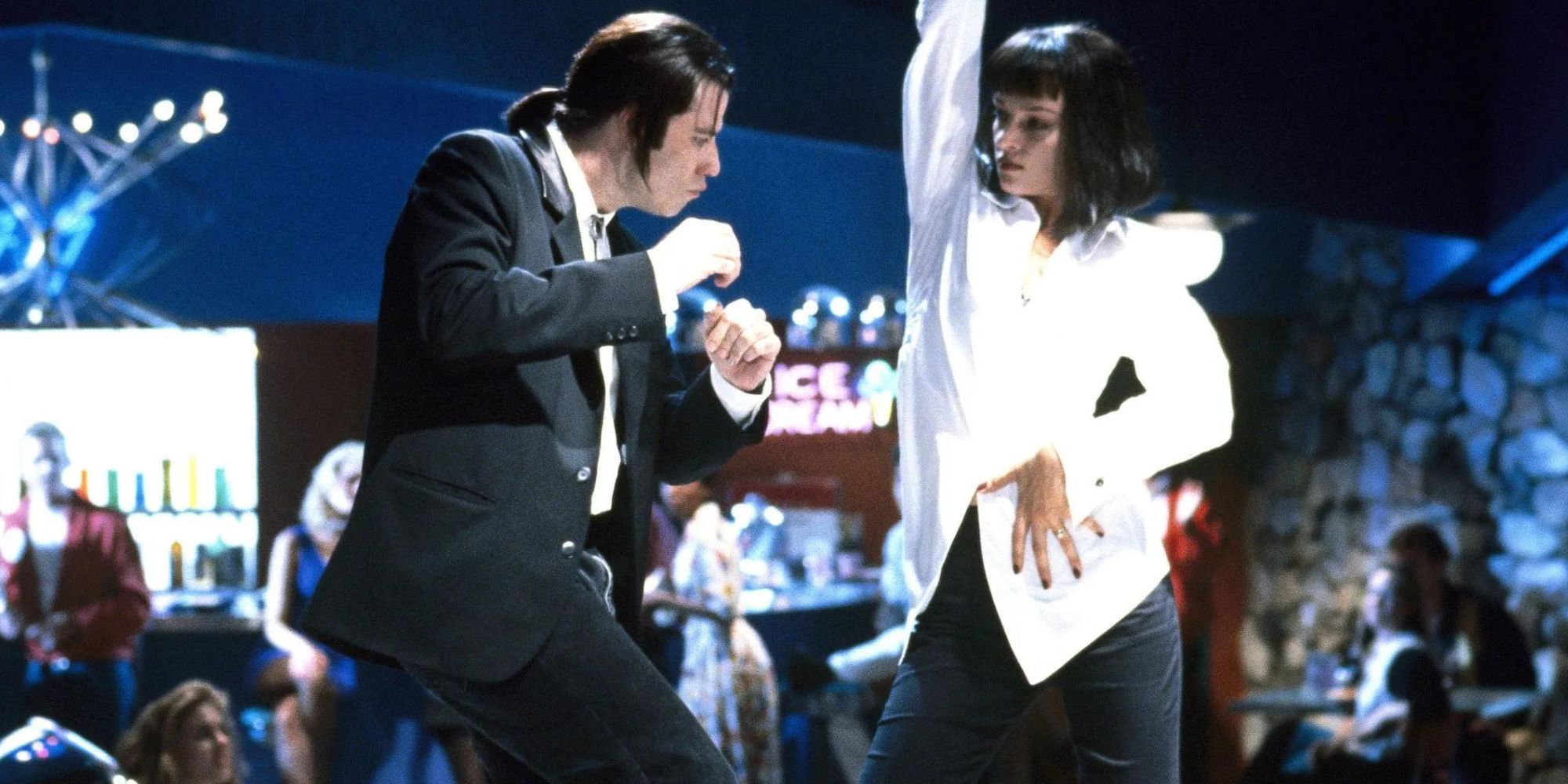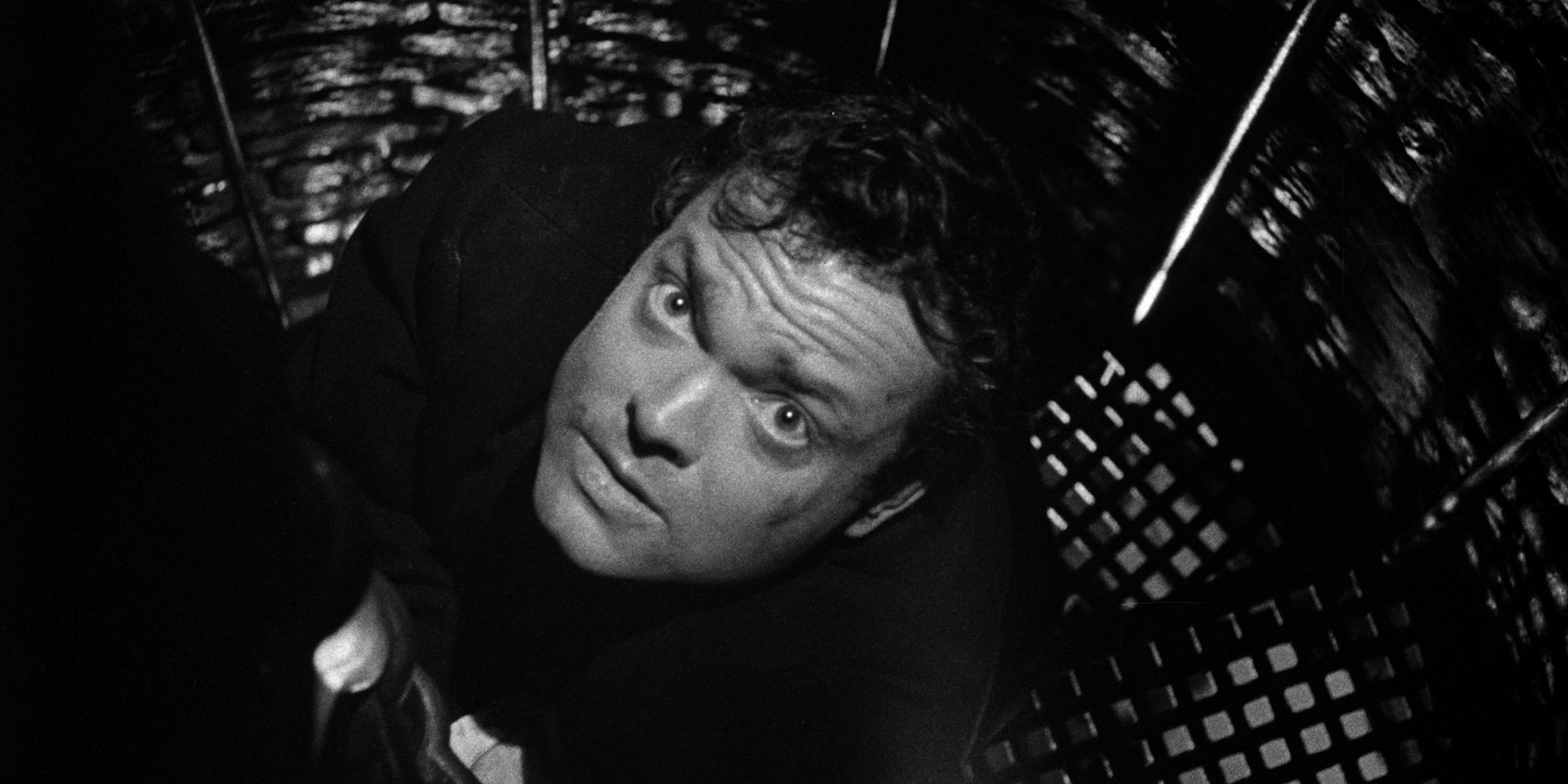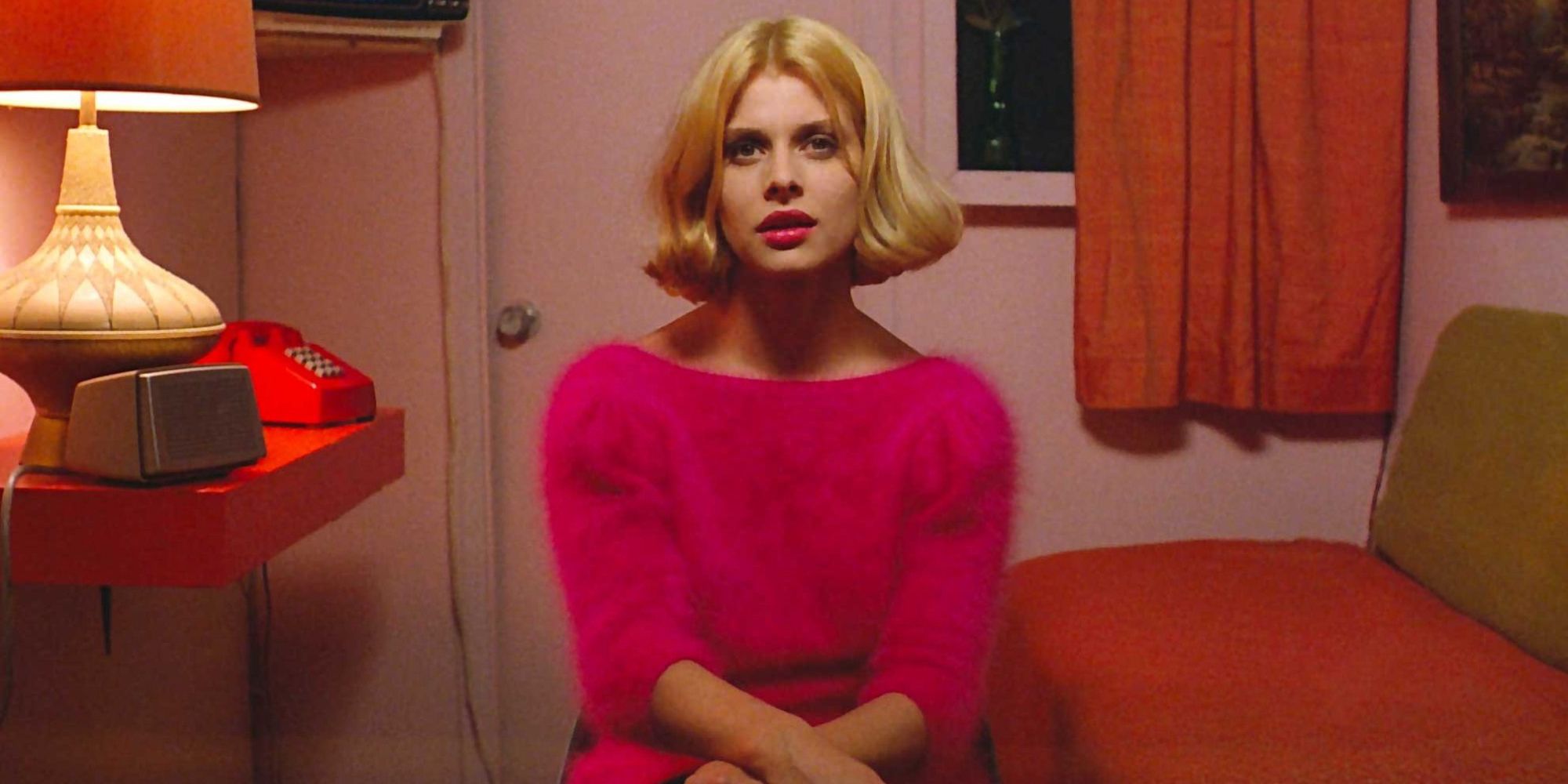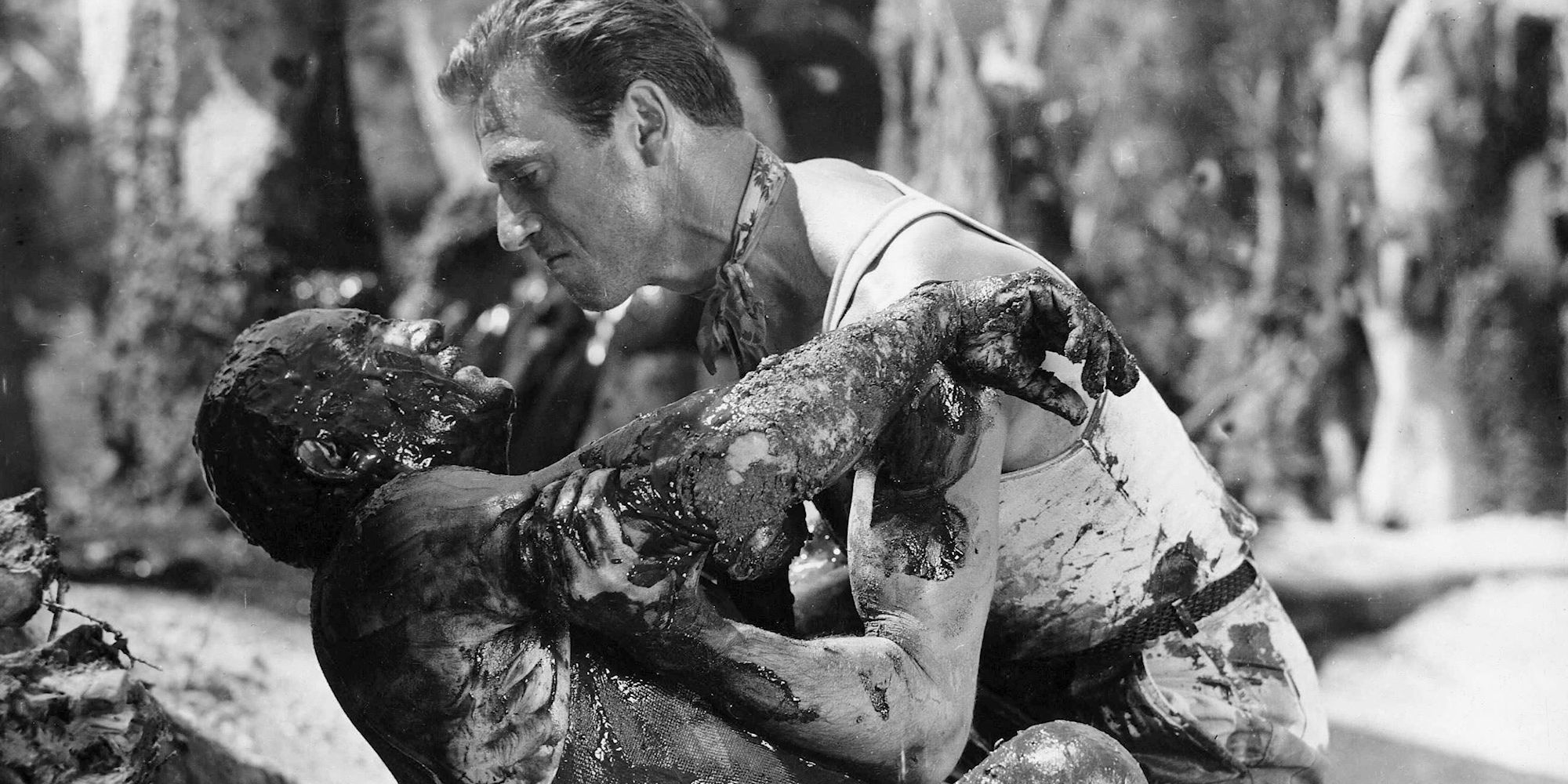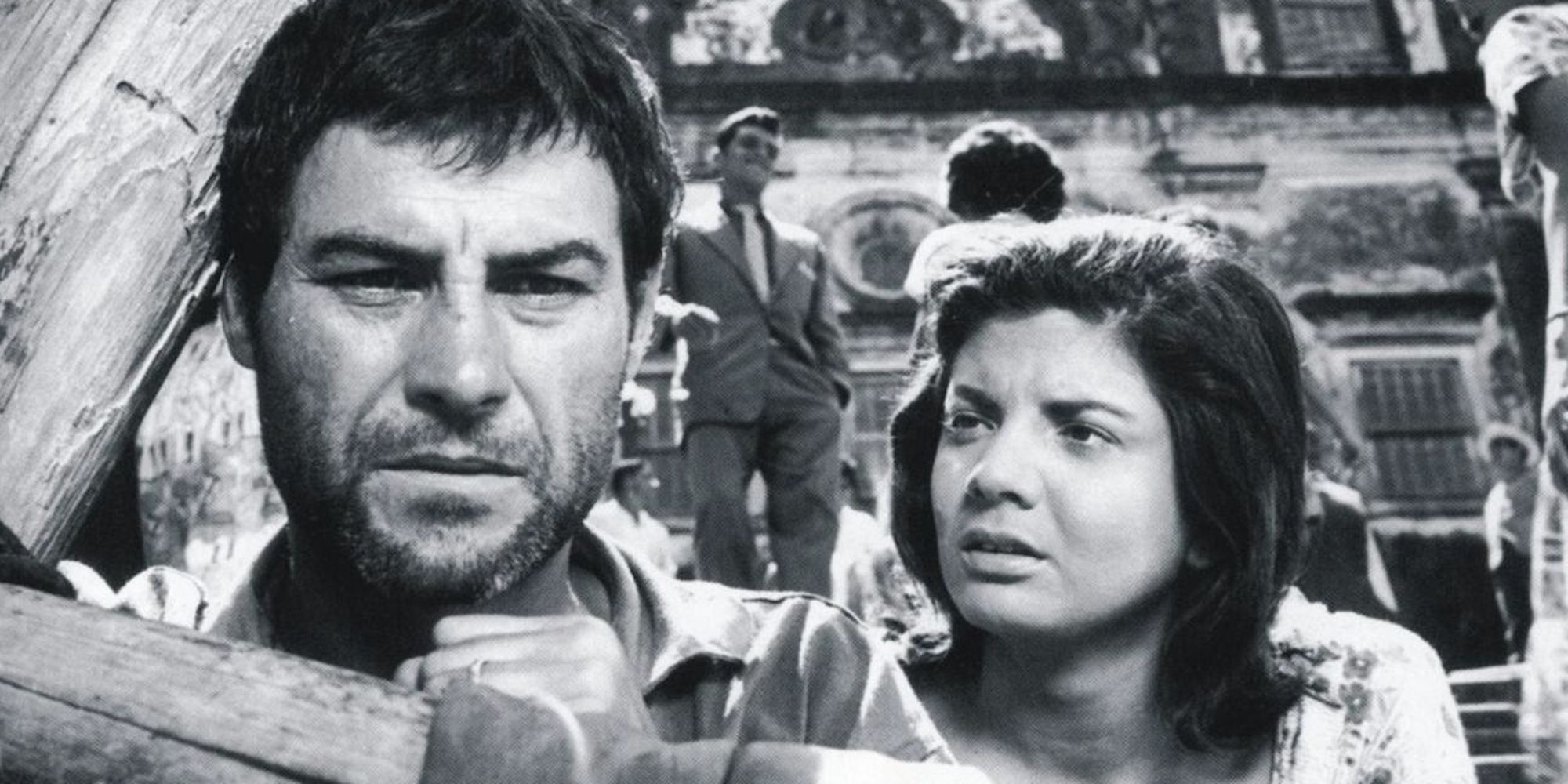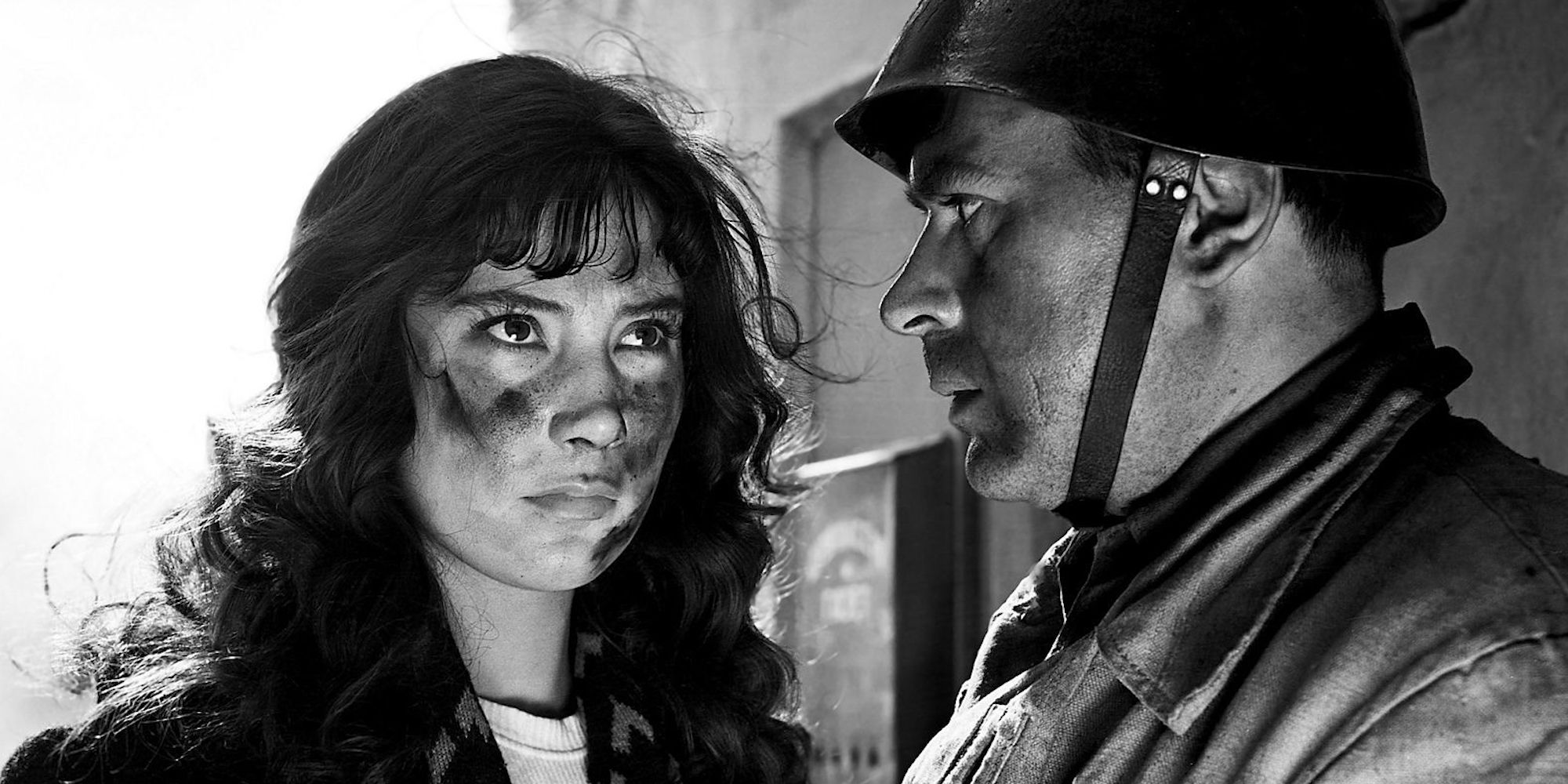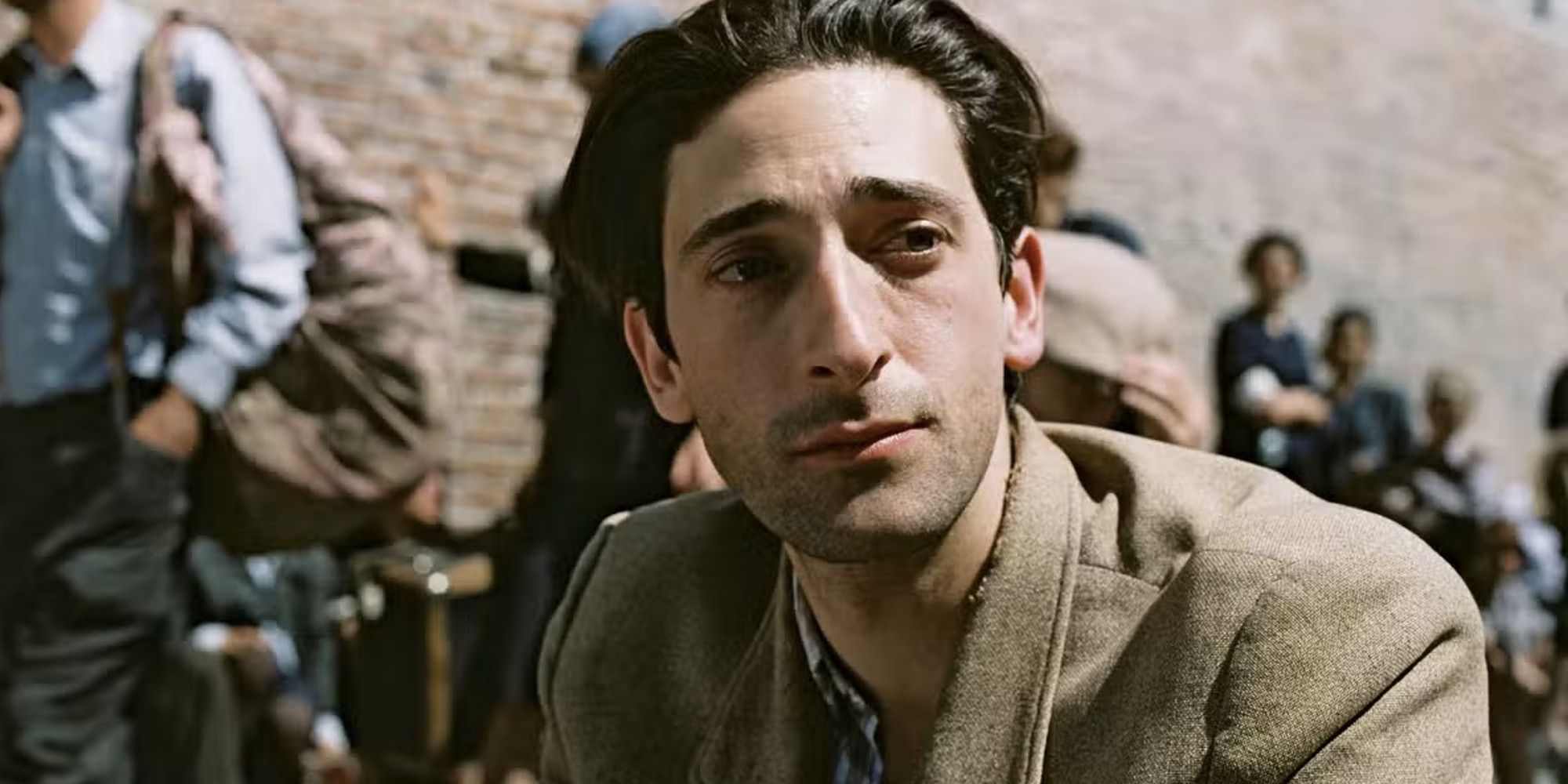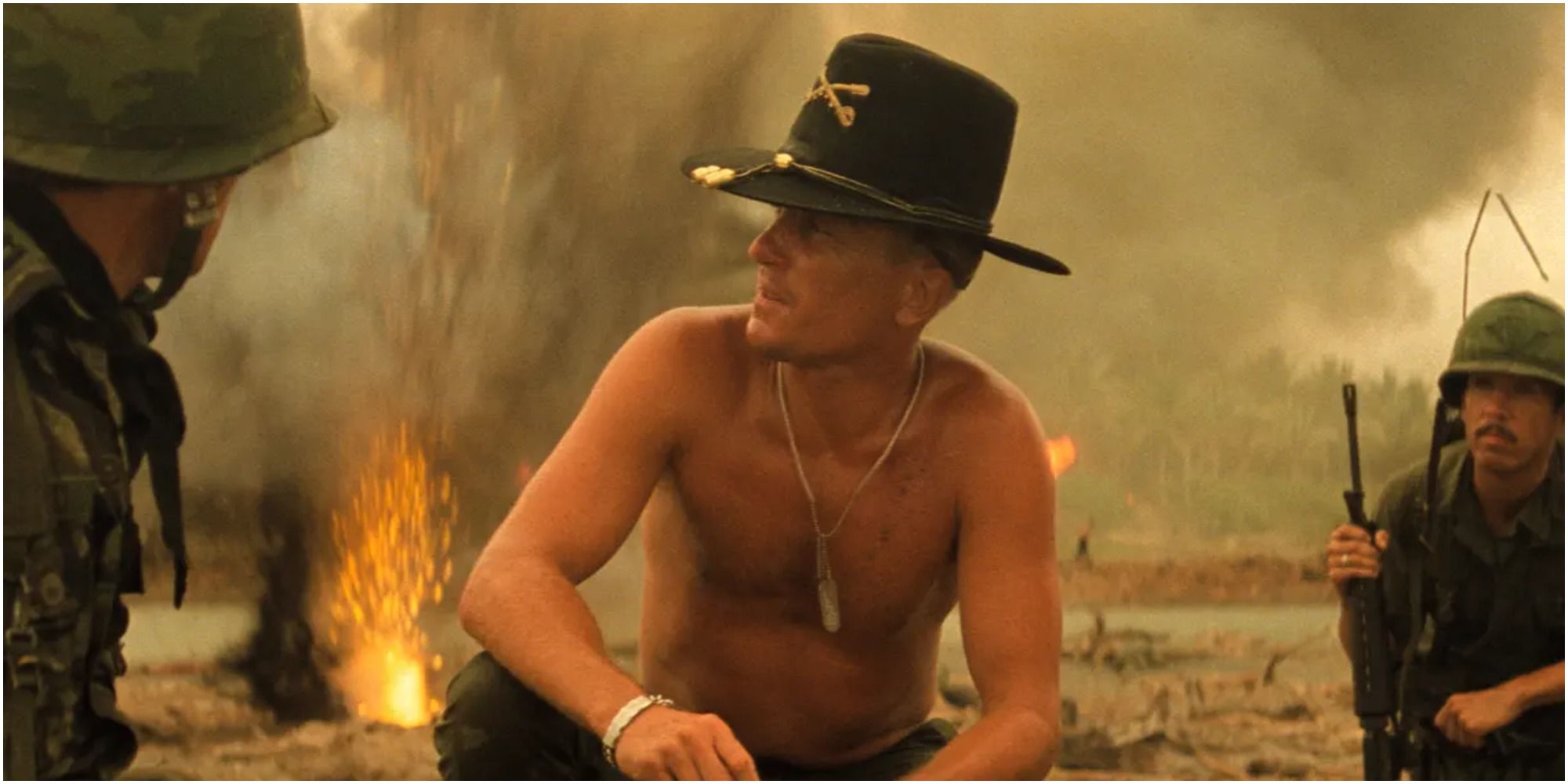Besides the Oscar for Best Picture, the Palme d'Or is the most prestigious award a movie can win. It's the best film prize handed out at the Cannes Film Festival in France, selected by a jury that changes every year. Whereas Best Picture winners tend to be more traditional crowd-pleasers, the Cannes jury has often awarded idiosyncratic or boundary-pushing movies.
Cannes has honored a wide variety of films since the festival began in 1946, from horror to documentaries to experimental movies, many of them foreign films. In some cases, the Palme d'Or winners have gone on to be more influential than the Oscar winners. This year's winner was Ruben Östlund's black comedy Triangle of Sadness, which also has a lot of Oscar buzz. Past winners include some of the greatest films ever made.
'The Third Man' (1949) - IMDb: 8.1/10
Orson Welles stars in this Cold War drama directed by Carol Reede and written by novelist Graham Greene. Holly Martins (Joseph Cotten) moves to Vienna to take a job with his friend Harry Lime (Welles). However, when he gets there Lime is nowhere to be found. Some people even say he is dead. Martins begins investigating Lime's disappearance, which leads him into danger.
Since its release, The Third Man has consistently been ranked among the all-time best British movies. In particular, the movie is praised for Welles's performance, the striking expressionist black-and-white cinematography, and the theme tune, which became a hit.
'Paris, Texas' (1984) - IMDb: 8.1/10
Paris, Texas is the signature movie by German director Wim Wenders. It revolves around a drifter named Travis (Harry Dean Stanton) who wanders through the desert in a fugue state. Unsure of what has happened, Travis seeks out his brother (Dean Stockwell) and son (Hunter Carson). After he finds the boy, the pair of them set out on a quest across the American Southwest to find Travis's missing wife (Nastassja Kinski).
It's an inventive mix of a road movie, a tragedy, and a neo-western. It has since been cited as a favorite by directors Wes Anderson, David Robert Mitchell, and even Akira Kurosawa. Roger Ebert called it "a movie with the kind of passion and willingness to experiment that was more common fifteen years ago than it is now [...] It is true, deep, and brilliant."
'The Wages of Fear' (1953) - IMDb: 8.2/10
The Wages of Fear is a thriller directed by French suspense master Henri-Georges Clouzot. Set in rural South America, it tells the story of four men hired to transport a leaking shipment of nitroglycerin. It's a deadly task that pushes them all to the brink.
The film was a big influence on Christopher Nolan's Dunkirk. He reportedly made the crew watch it during production. Critic Pauline Kael described it as "an existential thriller—the most original and shocking French melodrama of the 50s". William Friedkin's 1978 cult classic Sorcerer is a loose remake and is also well worth checking out.
'Taxi Driver' (1976) - IMDb: 8.2/10
"You talking to me?" Taxi Driver might be Martin Scorsese's best movie. It's certainly his darkest. It follows the increasingly unstable Travis Bickle (Robert DeNiro) moonlighting as a taxi driver in New York City. He becomes obsessed with Betsy (Cybill Shepherd), a young woman working for Senator Charles Palantine (Leonard Harris). Plagued by violent thoughts, Travis eventually sets out to assassinate the politician. In a chilling case of life imitating art, Taxi Driver inspired the real-life shooting of Ronald Reagan in 1981.
Scorsese has said that Taxi Driver was his attempt at capturing the malaise and disillusionment of the late 1970s. "You can't make movies any more in which the whole country seems to make sense. After Vietnam, after Watergate, it's not just a temporary thing," he explains. "It's a permanent thing the country's going through. All the things we held sacred [...] whoosh!"
'The Given Word' (1962) - IMDb: 8.3/10
The Given Word (also known as Keeper of Promises) follows Zé (Leonardo Villar), a landowner whose best friend is a donkey. After the donkey falls gravely ill, Zé begs the spirit of Saint Barbara to help the animal. He promises that if the donkey recovers, he will donate his property to the poor and carry a cross from his house all the way to the city of Salvador.
The donkey promptly gets better, and Zé sets out on a grueling mission to fulfill his oath. Although a little dated now, The Given Word still resonates as a drama about faith and the human spirit. It went on to become the first South American movie to be nominated for the Best Foreign Language Film Oscar.
'The Cranes Are Flying' (1957) - IMDb: 8.3/10
The Cranes Are Flying is a World War II drama, and the only Soviet film to win the Palme d'Or. Veronika's (Tatiana Samoilova) life is upended in 1942 when the Germans invade Russia and her boyfriend Boris (Aleksey Batalov) is drafted. The film follows two parallel narratives: Boris at the front and Veronika in Moscow, where Boris's cousin Mark (Aleksandr Shvorin) confesses his love for her.
The Cranes Are Flying is a propaganda film, but it represented a more nuanced and morally gray take on the War than previous Soviet films. It focuses on the war's effects on ordinary people and succeeds thanks to the committed, believable performance by Samoilova.
'The Pianist' (2002) - IMDb: 8.5/10
Roman Polanski won the Best Director Oscar for this film adaptation of the memoir by Polish composer Władysław Szpilman. It chronicles his experience in a concentration camp during the Holocaust. Adrien Brody plays Szpilman, delivering the most powerful performance of a career packed with highlights.
"I strive to find material that I will grow from, that will inspire me or educate me about some social issue that I don’t know enough about, or that I do know about, but I want to learn more, about struggles that I haven’t had to endure," Brody has said, explaining why he took on the challenging role. "And that gives you a greater understanding of the suffering that exists in the world, and also the joy that exists in the world."
'Apocalypse Now' (1979) - IMDb: 8.5/10
"I love the smell of napalm in the morning." After the success of The Godfather movies, Francis Ford Coppola set his sights on making an epic Vietnam War movie, based on a novel by Joseph Conrad. Armed with a mammoth budget, Coppola and co. headed to the Philippines, but the shoot was soon plagued by problems. Marlon Brando arrived overweight and under-prepared, Martin Sheen suffered mental health issues, and a typhoon wrecked some of the sets. This tortured production process is depicted in the documentary Hearts of Darkness.
Nevertheless, despite these challenges - or perhaps because of them - Coppola succeeded in crafting a beast of a film that remains a towering achievement even today. Other classic war movies have been made since, like Saving Private Ryan and Dunkirk, but none can compete with Apocalypse Now in terms of sheer scale and intensity.
'Parasite' (2019) - IMDb: 8.5/10
South Korean cinema has become a hotbed of creativity over the last several years. Filmmakers like Lee Chang-dong and Park Chan-wook have consistently delivered smart, boundary-pushing projects. No movie better encapsulates this trend than Bong Joon-Ho's black comedy about a poor family who infiltrate a wealthy household.
"A lot of people say it’s a universal story because it’s about the gap between rich and poor, but I don’t think that’s all the answer,” Bong-Joon Ho has said of Parasite's surprising success. "I think this film has done so well because it appeals in a very cinematic way, as a film in itself." It became only the second movie to ever win both the Palme d'Or and the Best Picture Oscar.
'Pulp Fiction' (1994) - IMDb: 8.9/10
"The path of the righteous man..." With a studio budget at his disposal for the first time, Quentin Tarantino unleashed his madcap genius. The result is this time-twisting, movie-referencing, uber-violent crime film, the most beloved Palme d'Or winner of all time. Practically every scene from Pulp Fiction has become iconic, from the diner robbery to "Say what again!" to the dance scene to the shot of adrenaline to Mia Wallace's (Uma Thurman) heart.
"I'm using old forms of storytelling and then purposely having them run awry," Tarantino has said of the movie's three interlocking stories. "Part of the trick is to take these movie characters, these genre characters, and these genre situations and actually apply them to some of real life's rules and see how they unravel." Pulp Fiction cast a shadow over the rest of '90s cinema, and its influence can still be felt today. It's QT's finest achievement; a postmodern masterpiece.

